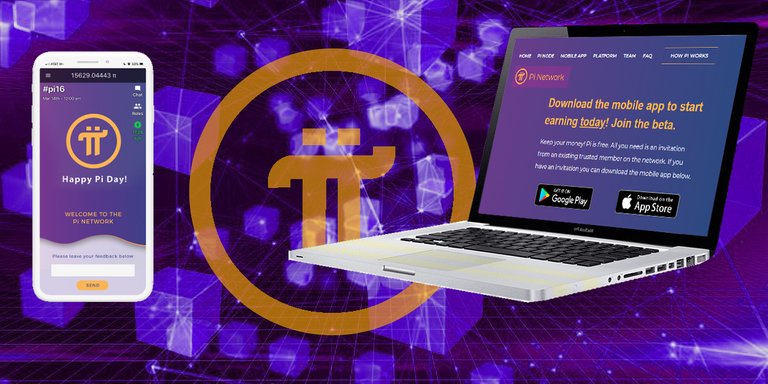
A new cryptocurrency project called the Pi Network was launched on march 14, 2019 by a team of Stanford PhDs and graduates with the goal of making digital currencies more easily accessible to everyday people.
But what exactly are cryptocurrencies? Cryptocurrencies are currencies which exist in an electronic form and can be used to make payments much like physical cash. Most digital currencies are designed in such a way that the network which secures transactions is decentralized or not controlled by any one group or entity like the government for example.
There are three development phases of the Pi Network. During the first phase, adjustments are made in areas such as design to enhance user experience while Pi is distributed to users. The distribution of Pi may continue up until the final phase.
In phase 2 of the project, the Node software needed for supporting and securing the network is tested. See more on Nodes here .
The final phase will see the launch of the official main-net of the Pi network. The amount of Pi rewarded to users during distribution will then be transferred to the main Pi Network and any rewards obtained through fake or duplicate users will be discarded.
How and why will Pi become valuable? The value of Pi will depend on the number of people who will use it and the variety of things it will be used or exchanged for. The more goods and services Pi can be exchanged for, the more valuable it becomes. In short, it is the collective use and usefulness of Pi which will help to determine its value. Pi will also be exchangeable to other currencies.
The demand for Pi will likely increase as more people become aware of its potential value. This can provide tremendous wealth for early adopters who had taken the opportunity to capitalize on the free distribution of Pi during its early stages of development. Platforms will be built on the Pi network to allow members the opportunity to generate wealth by offering goods and services for sale as well as pool together their collective resources so that they can receive a share of the value that they create online.
How can I earn Pi? You can earn Pi as a pioneer by simply checking in every 24 hrs to show your commitment to the Pi network. Checking in proves that you are human, and not a malicious application or program attempting to cheat the system.
You can further increase your Pi earnings as a contributor by helping to build the security graph. It requires you to add to your security circle, at least 5 people (Pi Users) who you trust. The more real humans involved, the more stable and secure Pi becomes.
You can also earn Pi as an Ambassador by inviting others to join the network. You will need to provide your invitation code which happens to be your chosen username. For every person that you invite, when both of you are active, both of you earn an additional 25% more of your base Pi reward (mining) rate.
To receive a daily reward of Pi, you will only need to download the mobile application and use an invitation code from an existing trusted member on the network. If you do not have an invitation code, you may use: SharePie . Download the Pi Network mobile application on google play store or access the download link on the main website: minepi.com.
Beyond earning Pi, you can actively participate in the growth, development and success of the Pi Network. If you are someone with the desire to create meaningful change and positive impact, being part of Pi Network may well inspire you to start your own cryptocurrency project with the potential to create new economic opportunities for yourself and others.
With a rapid growing community nearing 10 million users, the Pi network looks to be set for long term success.
I am convinced that cryptocurrency is one of the most powerful tools we have to provide opportunities for people everywhere to achieve a new meaning of prosperity.
― Vincent McPhillip, Head of Community at Pi Network
sources: | The economics of digital currencies | Pi Network | Wikipedia |